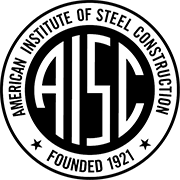Continuing Education
Experimental and numerical investigation of the impact of non-uniform end bearing conditions on the axial capacity of global height, unsheathed, cold-formed steel wall assemblies
Cold-formed steel load-bearing walls are commonly installed on concrete slab floors. While these floors may appear sufficiently rigid, they impart a non-uniform bearing condition on the ends of the stud walls. This non-uniformity can be caused by surface roughness, or the distance to the edge of the slab. Some wall assemblies are even erroneously installed overhanging from the slab edge. The impact of these non-uniform end bearing conditions on the axial capacity of unsheathed, variable height, cold-formed steel stud-track wall assemblies was investigated via a suite of 58 experimental tests and 1716 high-fidelity finite element models. While the assembly heights were varied to assess performance at heights corresponding to local, distortional, and global halfwavelengths, only the global effort is presented herein. The test specimens were comprised of 600S162 cold-formed steel structural sections (C-studs), that varied in thickness, and end bearing condition. Bearing conditions were parametrically varied from full-bearing (i.e., middle of slab) to 0.50 in (25.4 mm) overhang. Results from the experimental investigation were utilized to develop and calibrate high-fidelity finite element models. These models utilized imperfections, contact definitions, non-linear material properties, and were used to expand the investigation to 12 cross sections and 7 unique bearing conditions presented in this paper. The selected cross-sections varied in stud depth, flange width, lip width, and thickness. Results from the experimental study and parametric evaluation are presented and compared with theoretical (Euler) and design (AISI S100 - Direct strength method) equations to assess the performance of predictive methods and evaluate the impact of varying bearing conditions.
- Date: 4/12/2023 - 4/14/2023
- PDH Credits: 0
AUTHORS
Divyansh R. Kapoor, Hernan Castaneda, Abbas Joorabchian, Zhanjie Li, Kara D. Peterman
